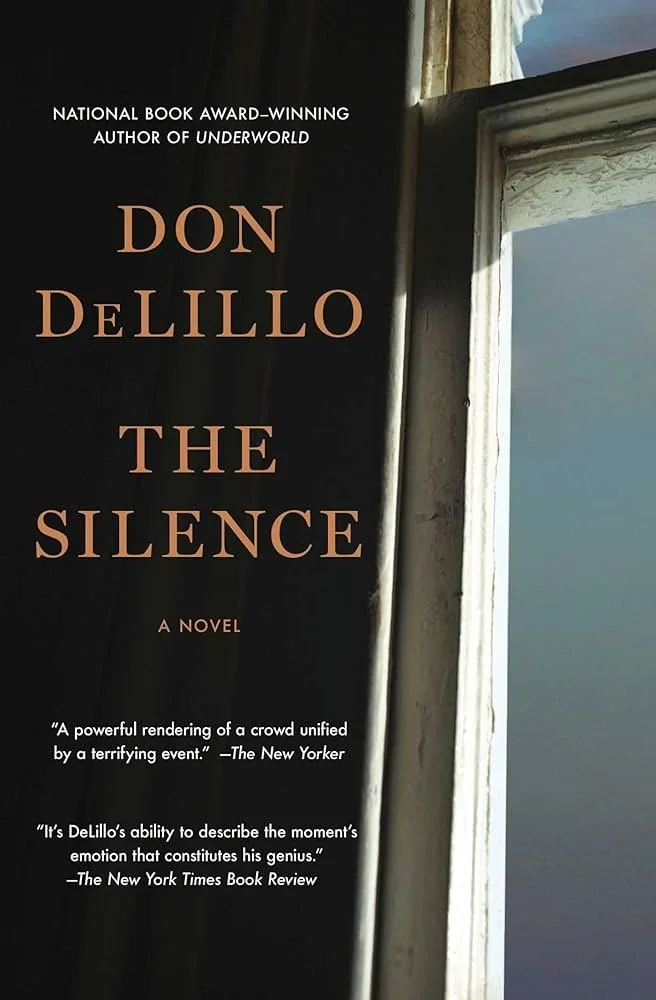Book Review : Don DeLillo - Mao II (1991)
The events of 9/11 changed the world in more ways than one. One of them being that it changed how we create. If philosopher Theodor Adorno once famously said that there can be no poetry after Auschwitz, occidental artists sure struggled to write some after the towers came down. American man of letters Don DeLillo himself fell short with his 9/11 novel Falling Man in 2007, which is curious because he wrote a rather prescient one a decade before the tragedy. Was writing about 9/11 before 9/11 the only way to ever do it? It sure is what DeLillo’s 1991 Mao II oddly seems to suggest.
OK. Buckle up because it’s not going to be straightforward: Mao II tells the story of reclusive author Bill Gray, who is working on a much anticipated novel he doesn’t want to finish. He agrees to be photographed by a young artist named Brita and proceeds to say a lot of weird, cryptic shit to her. Then, he disappears and Mao II becomes really strange. Karen, a character from the (awesome) prologue, is reintroduced into the storyline, Bill travels to London and embarks on a mission to save a Swiss writer held hostage by a terrorist group in Lebanon, all hell breaks loose. That’s about it, really. It’s super fragmented, loopy and kind of adorable.
I used to think it was possible for a novelist to alter the inner life of the culture. Now bomb-makers and gunmen have taken that territory. They make raids on human consciousness. What writers used to do before we were all incorporated.
The main theme of Mao II is terror and how it altered collective consciousness. Bill Gray himself, who’s job it is to alter consciousness with his writing, willingly decides to pause the writing of his novel and inserts himself into a dangerous hostage situation involving a terrorist group and another writer. Bill’s motivation are never made 100% clear, but Don DeLillo’s metacommentary sure is: the terrorism plot overtakes Mao II and the philosophical questions raised in the first half of the novel gradually fade into oblivion.
DeLillo’s point in taking such a sharp narrative curve is to question the very reasons why art should exist in the context of collective identity, dogmatism and immediate violence. Although Bill Gray’s necessary to Mao II, I thought he was the least interesting part of the novel from my very revisionist point of view. Don DeLillo’s depiction of crowds, media and a world that is going out of wack with dread made Mao II this prophetic omen of Orwellian magnitude to me. The prologue is perhaps the greatest prologue in literary history, where parents are watching their daughter marry a man she doesn’t know in a weird cult ceremony in Yankee Stadium.
If that didn’t illustrate the ideological gap between generations created by a more connected culture to you, I don’t know what will. Mao II is truffled with powerful visual statements like this, but the prologue is perhaps the strongest.
Mao II was awesome, but where does it rank in Don DeLillo’s legacy or, at least, the part of it that I’m aware of. I would rank it third behind White Noise and Great Jones Street in terms of personal enjoyment and thought-provoking insight. The subject matter is inherently more serious than the latter, but Mao II is so fragmented and meta that it doesn’t measure to the cohesiveness of Great Jones Street’s argument, which… you know, also involves a conspiracy. But at the end of the day, it’s hard not to love a novel that reads like the distorted reflection of a future you’ve already lived. That’s why Mao II deserves to be read and remembered.
7/10






